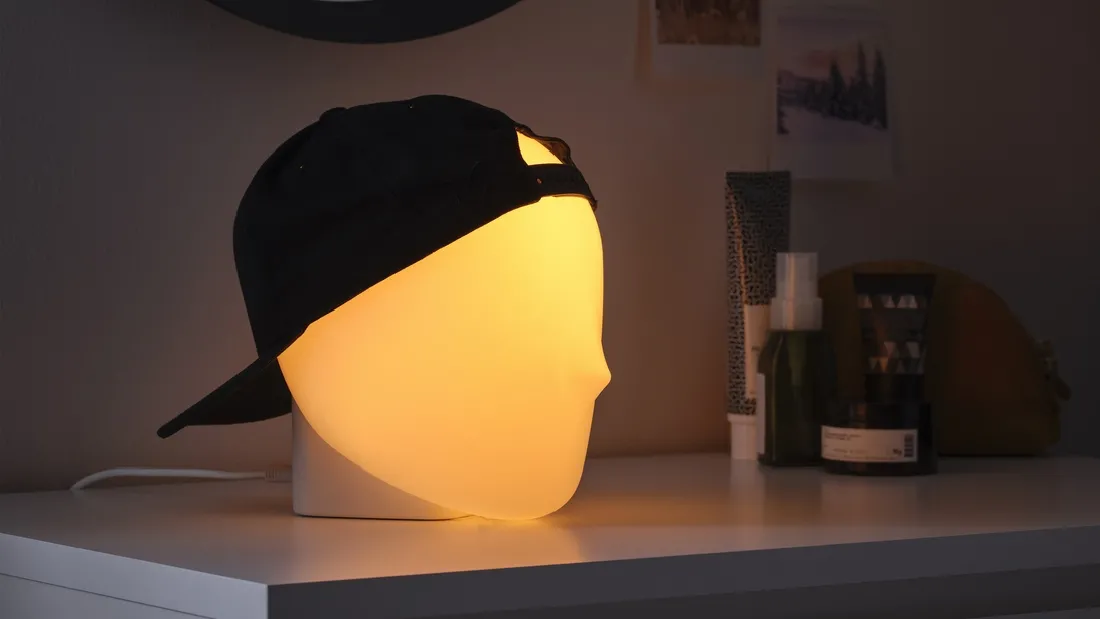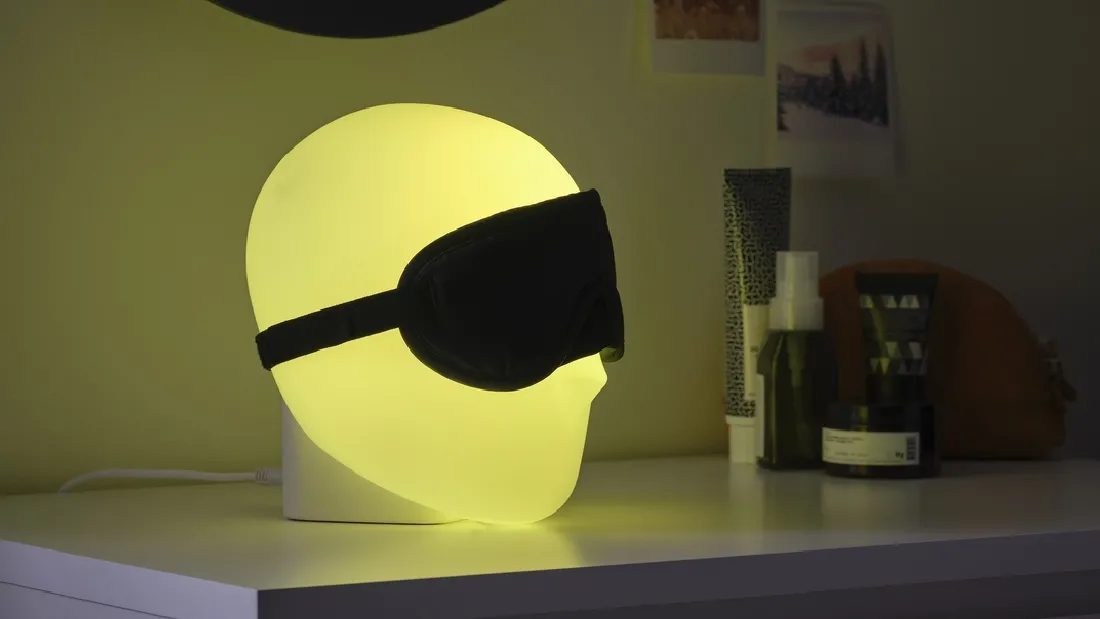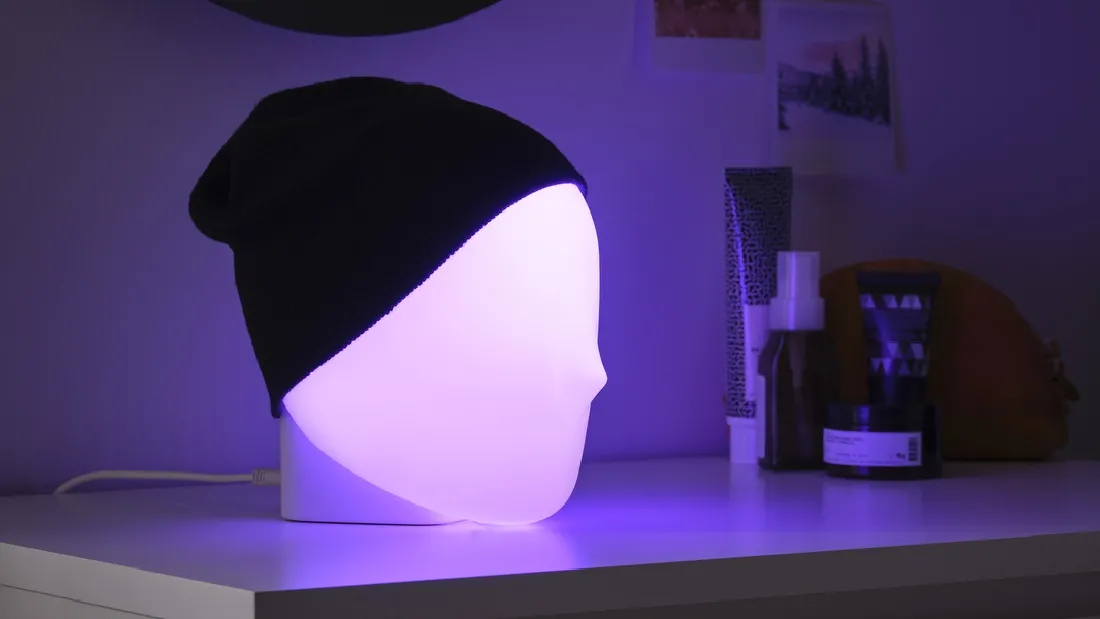Choosing the color of a lamp is not just about its beauty; more than that, the color of the lamp can affect the quality of sleep. Here are recommendations for bedroom lamp colors for a more restful sleep:
Yellow or warm colors
Yellow or warm light creates a comfortable and calming atmosphere, similar to candlelight or the setting sun. This color has a relaxing effect on the body and mind, helping you feel calmer and ready for sleep.
Yellow or warm lamps can also help increase the production of the hormone melatonin, the body's natural sleep hormone. By increasing melatonin levels, you will fall asleep more easily and enjoy a more restful sleep.
Red color
Several studies have shown that red light can increase melatonin production more effectively than other light colors. This makes red light a good choice for improving sleep quality and helping you achieve a more restful sleep.
If you have trouble sleeping or often wake up at night, consider using a red bedside lamp or a night light with a red filter.
You can also choose
aesthetic bedroom lights from IKEA. That way, your sleep quality will be better and of course, you won't get bored looking at the bedroom ceiling.
Orange / amber color
Orange or amber light has a relaxing effect similar to yellow light. This color can also help relieve stress and anxiety, so you can feel calmer before bed.
If you often have trouble sleeping because of a busy mind or an anxious mood, orange or amber lights can help you create a more conducive atmosphere for a good night's sleep.
If your home has a minimalist style, you can also use
minimalist bedroom lights from IKEA. Not only are the colors in line with the recommendations, but the appearance also matches the design of your home.
Bedside lamp light colors to avoid
Not all lamp colors can be used for bedside lamps; some colors should be avoided because they can affect sleep quality. Here are the colors of bedside lamp light that you should avoid:
Blue and white colors
Blue and white light, especially from electronic devices such as smartphones and laptops, can suppress melatonin production and disrupt your circadian rhythm. This can make it difficult for you to fall asleep and reduce the quality of your sleep.
It is best to avoid using electronic devices at least one hour before bed. If you must use electronic devices at night, use the night mode feature or blue light filter applications to reduce blue light exposure. Also, avoid using bright blue or white lights in your bedroom.
Also Read: Exploring unique wall bedside lamps to enhance your quality sleep
Tips to maximize the influence of light for sleep
We have some tips for those of you who have problems with bedside lamps. Here are tips to improve the quality of your sleep:
The influence of light color on sleep quality
Research has shown that light color can significantly affect sleep quality, either improving or decreasing it.
Blue light, for example, can suppress melatonin production by up to 85%, making it harder for you to fall asleep. In contrast, red light can increase melatonin production by up to 150%, helping you fall asleep faster and more soundly.
Therefore, it is important to choose a bedside lamp with the right color to create an optimal sleep environment. Warm colors like yellow, orange, and red can help you feel more relaxed and ready for bed, while cool colors like blue and white should be avoided.
Combining lighting with calming effects
To create a harmonious sleep atmosphere, you can combine the main light with a bedside lamp or night light. Use the main light with yellow or warm light to create a calming atmosphere in your bedroom.
As bedtime approaches, turn off the main light and turn on the bedside lamp or night light with red or orange light to help your body prepare for sleep.
For nighttime activities such as reading before bed, use a reading lamp with a soft yellow light that is not too bright. For reading lamps, you can also use
minimalist bedroom lights so that the lighting is not too flashy and the design is pleasing to the eye.
Using lamps with color settings
LED lamps with color settings provide the flexibility to create an optimal sleep atmosphere. You can adjust the color of the light according to your needs and preferences.
For example, you can use bright white light in the morning to help your body wake up, then switch to yellow or warm light in the evening to create a calming atmosphere.
Tips for choosing bedside lamps:
- Choose lamps with adjustable light intensity.
- Consider using lamps with timer or motion sensor features.
- Place bedside lamps in strategic locations, such as next to the bed or on the dressing table.
Create a peaceful sleep oasis with the right light



